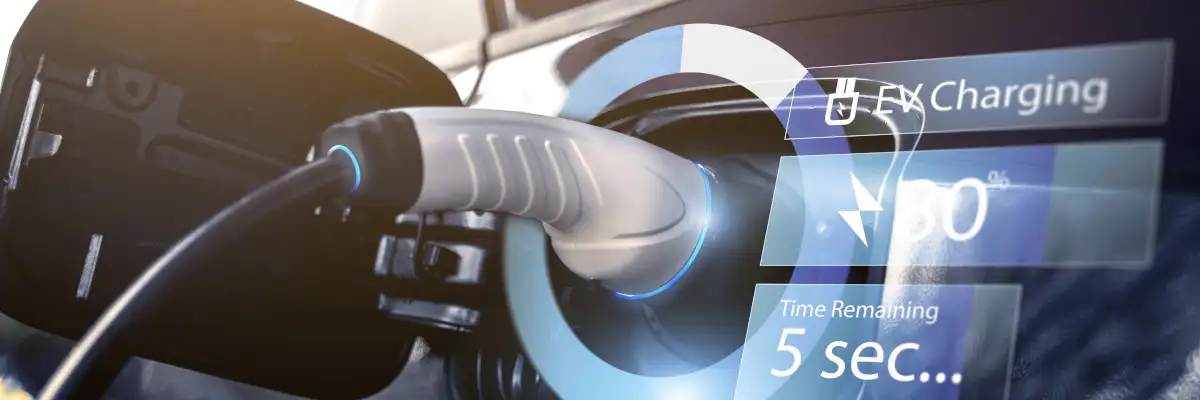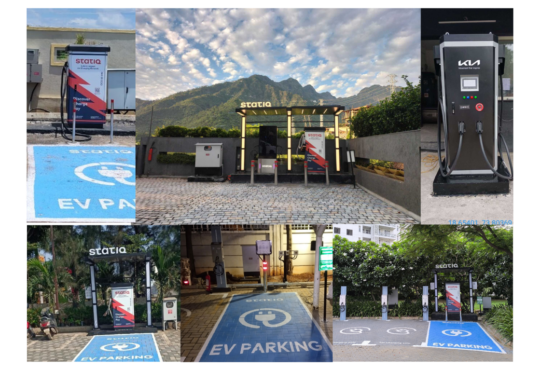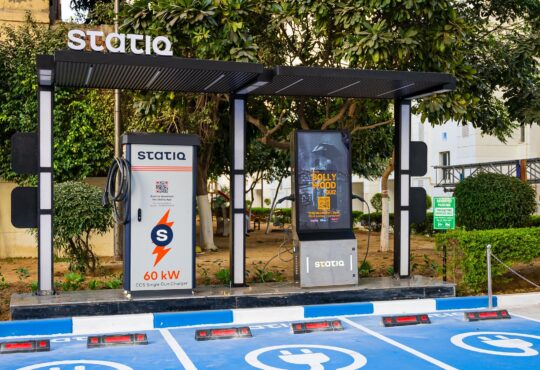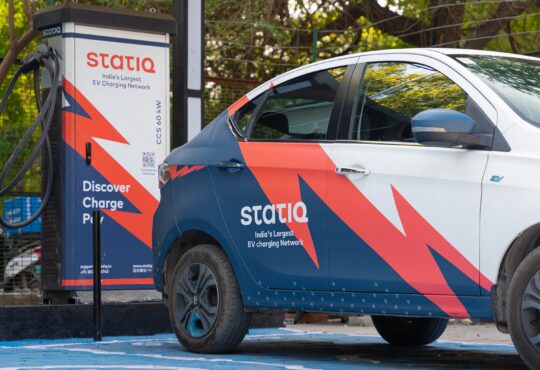
How Much Time Does It Take To Charge An Electric Car?
Electric vehicles are becoming popular day by day as people are becoming more environmentally conscious, and switching to electric cars is enabling them to contribute their part to protect the environment. However many people still resist adopting electric mobility in their day-to-day transportation due to EV car charging time and, the confusion around the charging facility in their cities.
Statiq is a leading EV charging station provider with 7,000+ electric vehicle charging stations across India. All you need to do is download and log in to the Statiq EV charging App, find the EV charging stations around you, book your charging, and pay online once you have charged your vehicle.
This blog will be your one-stop guide for all the information about the EV charging facility. You will learn about the factors that affect the charging speed and the time it takes to charge an electric vehicle at the EV charging station. You can also follow the tips provided at the end of the blog to enhance your EV experience wherever you go.
Factors that Influence Electric Vehicle Charging Time
There are various factors affecting EV car charging time. Generally, charging an EV can take as little as 30 minutes to more than 12 hours to fully charge a battery. All of it depends on battery size, charger type, types of EV model, and the output power a charging station receives from the source.
However, charging an electric car at an electric vehicle charging station is a convenient and efficient way to power up your vehicle because it provides a fast charging facility and can save you time. Hence, the availability of EV charging stations is necessary for you to enjoy a seamless EV experience.
Charging an electric car is a crucial aspect of electric vehicle ownership, and it’s essential to understand the factors that affect the EV car charging time. The charging time of an electric car depends on the following:
- Battery Size: The most significant factor determining how long it takes to charge an electric car is the size of its battery. The larger the battery, the longer it will take to charge it. For example, a smaller electric car with a 30 kWh battery may take 2 hours to charge, while a larger car with a 100 kWh battery may take 5-6 hours.
- Charger Type: The type of EV charger you will use will also affect the charging time. There are three types of EV chargers: Level 1, Level 2, and DC Fast Chargers.
- Level 1 chargers are generally slow chargers. Statiq Circle, Statiq AdWall, and Statiq Pillar are slow chargers that take more time than level 2 and DC Fast chargers to charge the vehicle. The output power of level 1 chargers ranges from 3.3 KW to 7.7 KW.
- GB/T charger is a level 2 charger that is faster than a level 1 charger but slower than DC Fast Charger. It has two charging guns of 30 KW each.
- DC Fast chargers are 60KW CCS chargers that take less time to charge an EV than Level 1 and Level 2. They come under the category of level 3 chargers. You can find it mainly in EV charging stations.
- Type of EV Model: EV models charge at different speeds due to their unique configurations. Some cars can only be compatible with slow chargers, while others can charge with both fast and slow EV chargers.
- Charging station power output: Each charging station has different power outputs, with some delivering up to 240 KW. The higher the power output, the faster the charging time.
Estimate Time to Charge an Electric Vehicle

Assuming an average charging station power output of 50 kW, it takes about 30 minutes to charge an electric car to 80% and about 45 minutes to charge it to 100%. However, charging from 20% to 80% typically takes between 45 minutes to an hour.
Now you may think how it takes around 45 minutes to charge an EV from 20% to 80% and around another 45 minutes to charge it from 80% to 100%. The reason is that the configuration of the battery is designed in such a way that it automatically slows down the charging speed once the battery reaches 80%, which prevents overheating of the battery. It helps maintain the battery’s health for longevity.
Quick Tips to Extend Electric Vehicle Battery Life

You can follow these quick tips to take care of your EV and extend your electric car battery longevity.
- Minimise exposure to extreme temperatures: It may sound usual, but overheating can harm your EV’s battery. Hence, you should prefer a shaded spot to park and charge your electric car whenever possible.
- Use DC Fast Chargers Sparingly: Avoid frequent use of DC Fast Chargers as they can degrade the battery life and may affect long-term performance. Most EV batteries are built for Level 2 charging standards. However, fast charging is a convenient option but avoid using it frequently.
- Do not fully drain your EV battery: The battery management system is designed in such a way that it automatically slows down the speed after 80% of the charge and switches to power-saving mode after dropping from a certain percentage. Always charge your EV once it drops to 20%, and avoid fully charging your battery to 100% for the overall lifespan of your battery.
- Follow the EV owner’s manual Instructions: Every electric vehicle has unique features and properties; hence their maintenance varies from each other. Follow the instructions mentioned in the EV owner’s manual for the best experience.
Conclusion
The EV car charging time of an electric car at an EV charging station depends on several factors, including the battery capacity, charging station power output, and charging speed. But you should follow these tips to enhance your overall EV battery lifespan and for a smooth EV experience. This blog has given you a brief understanding of EV charging and how to maintain your EV battery health.
Also read, Follow 5 EV Driving Tips in Summer



